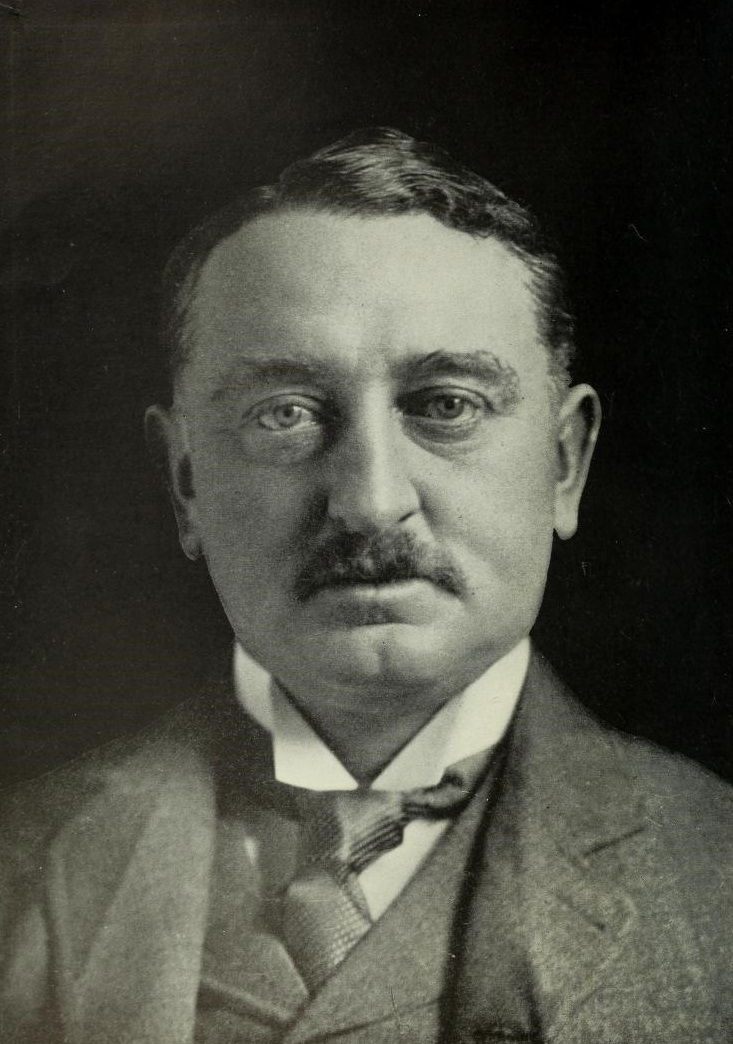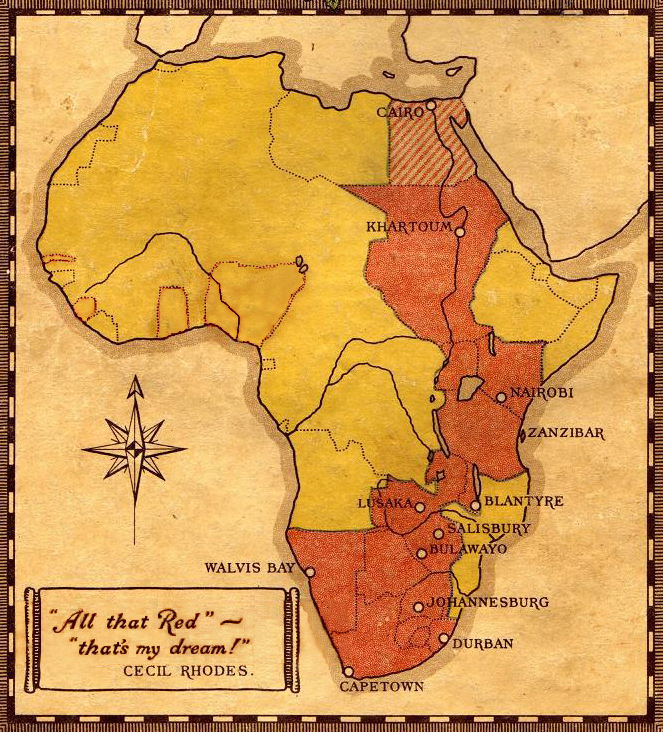Cecil Rhodes | |
|---|---|
 | |
| Born | 5 July 1853 Bishop's Stortford, England, United Kingdom |
| Died | 26 March 1902 Muizenberg, Cape Colony |
| Political orientation | Imperialism Colonialism |
| Political party | Liberal Party |
Cecil John Rhodes (5 July 1853 – 26 March 1902) was a British imperialist politician and millionaire. After seeing the suffering of the British working class, he believed that colonialism and imperialism were the only way to pacify the population and avoid a civil war.[1]
Education
Rhodes was admitted to Oriel College Oxford, but only stayed for one term in 1873 and only returned for his second term in 1876. He was greatly influenced by John Ruskin's inaugural lecture at Oxford, which reinforced his own attachment to the cause of British Imperialism. Among his Oxford associates were Rochefort Maguire, later a fellow of All Souls and a director of the British South Africa Company, and Charles Metcalfe.[2] At university, Rhodes was also taken up with the idea of creating a ‘secret society’ of British men who would be able to lead the world, and spread to all corners of the globe the spirit of the Englishman that Rhodes so admired. He wrote of this society,
"Why should we not form a secret society with but one object the furtherance of the British Empire and the bringing of the whole uncivilised world under British rule for the recovery of the United States for the making the Anglo-Saxon race but one Empire."[2]
His university career engendered in Rhodes his admiration for the Oxford 'system' which was eventually to mature in his scholarship scheme: "Wherever you turn your eye - except in science - an Oxford man is at the top of the tree."[2]
Beliefs

One of Rhodes’ guiding principles throughout his life, that underpinned almost all of his actions, was his firm belief that the Englishman was the greatest human specimen in the world and that his rule would be a benefit to all. Rhodes was the ultimate imperialist, he believed, above all else, in the glory of the British Empire and the superiority of the Englishman and British Rule, and saw it as his God given task to expand the Empire, not only for the good of that Empire, but, as he believed, for the good of all peoples over whom the British would rule.[2] At the age of 24 he had already shared this vision with his fellows in a tiny shack in a mining town in Kimberley, when he told them,
"The object of which I intend to devote my life is the defence and extension of the British Empire. I think that object a worthy one because the British Empire stands for the protection of all the inhabitants of a country in life, liberty, property, fair play and happiness and it is the greatest platform the world has ever seen for these purposes and for human enjoyment."[2]
References
- ↑ Vladimir Lenin (1916). Imperialism, the Highest Stage of Capitalism: 'Division of the World among the Great Powers'. Moscow: Progress Publishers. [MIA]
- ↑ 2.0 2.1 2.2 2.3 2.4 "Cecil John Rhodes" (2024-02-03). South African History Online. Archived from the original on 2024-02-03. Retrieved 2024-02-03.